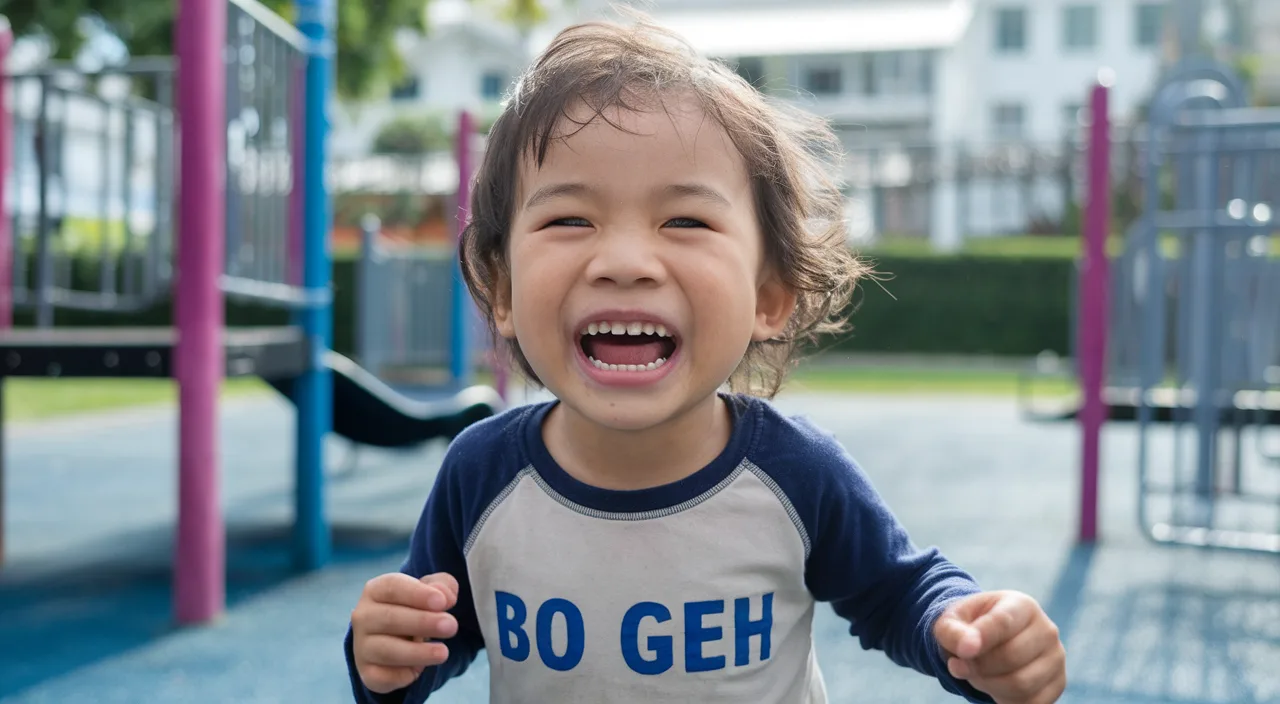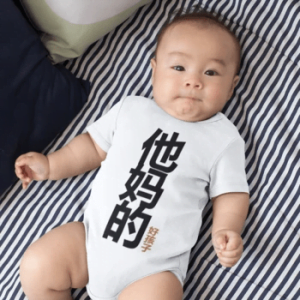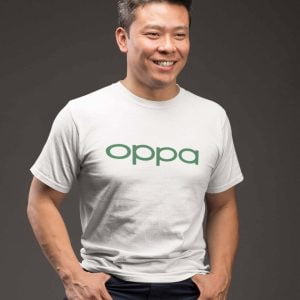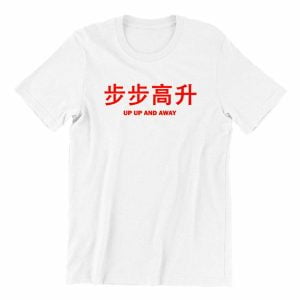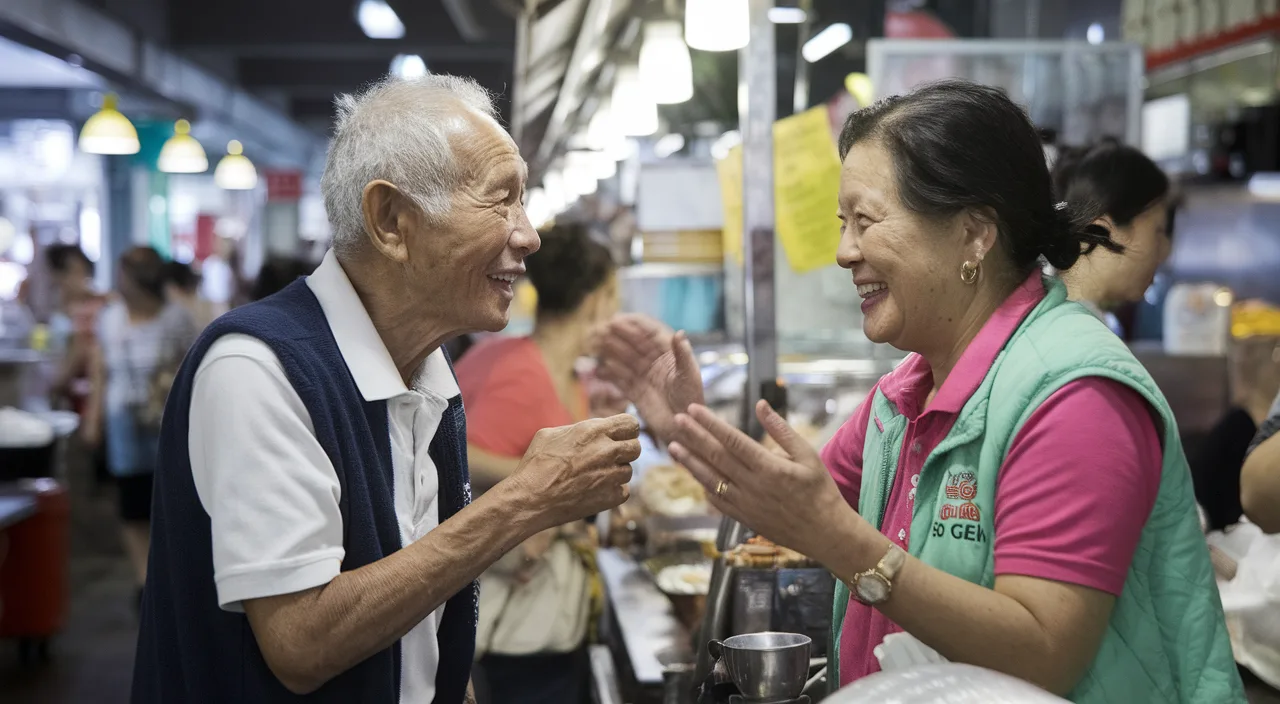What does Bo geh really mean—and why does it matter?
Short Answer: Bo geh is Singlish for toothless—literally—and it’s a playful insult or affectionate tease that reveals just how colorfully expressive and emotionally rich Singaporean colloquial language can be. But beyond the cheeky expression, Bo geh represents a larger piece in the Singlish puzzle—one that ties us to cultural memory, community wit, and linguistic evolution that defines our Singaporean identity.
-
Graphic, KaoBeiKing, T-shirts, Valentines
Price range: $30.00 through $38.00 Select options This product has multiple variants. The options may be chosen on the product page
TL;DR Summary: The True Power of Saying Bo geh
- Bo geh means toothless in Hokkien, often used as slang for someone who’s missing a tooth—or metaphorically, missing the power to bite back.
- It’s a Singlish classic: short, sharp, and loaded with expression—used in daily convos, jokes, and childhood taunts that showcase our cultural heritage.
- Deeply embedded in Singaporean identity and intertwined with local humor, hawker culture, and language mixing that preserves our emotional connection to community.
- Symbol of shared history: Many Singaporeans remember when Bo geh was used at school, kopitiams, or at pasar malam, creating lasting cultural bonds.
- Preserving such phrases matters: They’re little time capsules of our multilingual, multicultural story that strengthen our heritage.
The Cultural Significance of Bo geh in Singlish Heritage
If you grew up in Singapore, there’s a high chance you’ve shouted Eh, Bo geh ah! at a friend—or been on the receiving end of that iconic tease. It’s one of those Singlish phrases that captures our love for humorous mockery, complete with exaggerated facial expressions and dramatic reenactments that define our cultural identity.
Bo geh is a Hokkien term that literally means no tooth. But in Singlish, we take it past the dental chart and into the realm of cultural preservation. It can refer to:
- Kids just losing their baby teeth (and proudly showing that gaping gap)
- Uncles who left their dentures at home
- Someone who’s not biting back—figuratively toothless in an argument
This showcases how Singaporean colloquial language (a mash-up of English, Malay, Hokkien, Tamil, and more) has always been more than communication—it’s communion. Bo geh isn’t just what we say, but how we play, creating an emotional connection that strengthens our shared heritage.
-
KaoBeiKing, Men, Parody, T-shirts, Typography
Price range: $30.00 through $38.00 Select options This product has multiple variants. The options may be chosen on the product page
Language Evolution: How Bo geh Preserves Singaporean Identity
Language ages like kopi peng—strong, layered, and occasionally sweetened by memory. Bo geh didn’t start as a punchline. It emerged from Hokkien roots, when dialects were more than flavour—they were function that shaped our cultural heritage.
Over time, Bo geh joined other essential Singlish phrases in our language evolution:
- Bo jio – Didn’t invite me
- Bo chup – Don’t care
- Bo pian – No choice
- Bo liao – Nothing better to do
Notice a pattern? The bo prefix—from Hokkien—means no or lack of. It’s a linguistic building block that showcases how dialect plus English equals Singlish magic. Plus, these phrases survived the test of time not just because they’re expressive, but relatable AF, maintaining our emotional connection to heritage.
Even as English took over classrooms and proper conduct, these phrases slipped between lessons, scribbled in margins and mumbled under breath. Bo geh adapted, from dialect to slang to Singlish staple—proof that our language evolves but remembers, preserving cultural significance across generations.
Cultural Impact of Singlish on Singaporean Identity
Think about it. What’s your reaction when you hear someone use Bo geh?
If you’re like most locals, it’s an instant memory trigger that connects you to your heritage. Maybe you’re back in primary school with a shaky tooth, or teasing your cousin during makan time. That’s the emotional power of Singlish—it turns ordinary life into something worth laughing about while preserving our cultural identity.
Singlish phrases like Bo geh are memory glue that strengthens our heritage. They stick life’s everyday awkwardness and celebrations into a common code. You might speak different mother tongues, come from different neighborhoods, but whip out a good-natured Bo geh! and boom—shared laughter, instant rapport, cultural preservation in action.
This is what competitor posts often miss. Singlish isn’t only funny lah—it’s a soft power that maintains our emotional connection to community. It anchors identity and plural heritage in a land built on multicultural harmony. Bo geh keeps us cheeky, connected, and grounded in our Singaporean roots.
-
Price range: $30.00 through $38.00 Select options This product has multiple variants. The options may be chosen on the product page
-
Chinese, Chinese New Year, Ladies, Mens, T-shirts
Price range: $30.00 through $38.00 Select options This product has multiple variants. The options may be chosen on the product page
Heritage Preservation Through Language
Here’s a not-so-fun fact: some schools and workplaces still discourage Singlish. The pressure to speak proper English can invisibilize phrases like Bo geh—making them feel wrong or less-than, threatening our cultural heritage.
But in sidelining Singlish, we risk whitewashing lived realities and losing our emotional connection to community.
Instead, let’s treat Singlish like we do our best kopitiam food—preserve it, pass it down, and appreciate the rich layers. Bo geh is a microcosm of how words carry heritage. When we let it slip out of everyday use, we let go of the stories, the jokes, the wink-winks only we understand, weakening our cultural significance.
The younger crowd—yes, you, digital darlings—have power too in this cultural preservation effort. Use TikToks, memes, and captions to revive Singlish gems. You don’t need to speak geh kiang to support culture. Even one Bo geh in a video comment could keep the memory alive and strengthen our collective heritage.
Emotional Connection: How Bo geh Strengthens Cultural Bonds
Let’s be real: language isn’t just how we talk; it’s how we feel and connect to our heritage. Bo geh used in jest at a hawker stall can turn a stranger into a friend through shared cultural understanding. It’s playful, familiar, and distinctly ours—a perfect example of how Singaporean identity is preserved through colloquial language.
In moments of vulnerability or hilarity, Singlish lets you express layers that plain English can’t touch. Bo geh carries not just description, but affection, humour, embarrassment, pride—all at once, creating an emotional connection that transcends generations.
Some of us remember Ah Gong with no teeth bustling around on Chinese New Year. Or the void deck kids calling out Bo geh! as one of us proudly flashed our missing front tooth like a trophy. These aren’t just moments; they’re memory tapes tinged in dialect, laughter, and singlet-sweat nostalgia that form our cultural heritage.
Every time we use a word like Bo geh, we keep that sense of belonging alive through language evolution. Not as something outdated, but as a living, snappy part of our story that maintains our Singaporean identity.
Final Thoughts
Bo geh may just mean toothless, but its bite (pun intended) goes deep into our cultural psyche. It’s a phrase that proves our language is alive, cheeky, and deeply human. In a world rushing toward polish and professionalism, maintaining our playful, heartfelt expressions like Bo geh is the cheeky resistance we need for cultural preservation and heritage protection.
So the next time someone flashes a gaping grin or fumbles for comebacks, don’t just laugh—say Bo geh with pride. It’s not just about teeth. It’s about community, heritage, and above all, the emotional connection that defines our Singaporean identity.
Frequently Asked Questions
- What does Bo geh literally mean?
Bo geh comes from Hokkien and literally means no teeth. - How is Bo geh used in modern Singlish?
It’s often used humorously to describe someone who’s missing a tooth or lacks bite in arguments. - Is Bo geh offensive?
Used playfully, it’s not offensive. It depends on context—like teasing a friend in jest. - Why do Singlish phrases like Bo geh matter?
They preserve Singapore’s multicultural history and emotional connections in ways formal English can’t. - How can I help preserve Singlish phrases?
Use them in daily life, social media, and teach younger ones their meaning and origins. - What’s the difference between Bo geh and Bo liao?
Bo geh means toothless, while Bo liao means having nothing better to do. - Can Singlish exist alongside Standard English?
Absolutely. It’s about code-switching—knowing when to use which contextually.



